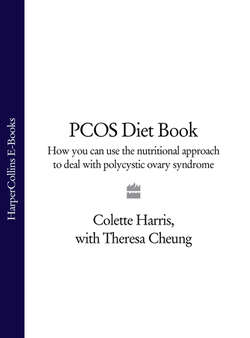Читать книгу PCOS Diet Book: How you can use the nutritional approach to deal with polycystic ovary syndrome - Theresa Cheung - Страница 42
Why?
ОглавлениеProtein helps maintain blood-sugar balance and gives your body an even supply of the amino acids it needs to build and repair cells and manufacture hormones and brain chemicals. Since your body can’t store amino acids, as it does carbohydrates and fat, you need a constant supply of them. That’s why you need to eat some high-quality protein with every meal.
The amino acids are called ‘the building blocks of life’ because the body uses them to rebuild and repair its tissues and organs. If water were removed from your body, more than half of its dry weight would be protein. Your skin, hair, nails, muscles, metabolic enzymes, neurotransmitters and, most importantly for PCOS, your hormones are all composed of protein.
Proteins perform many life-enhancing functions inside our bodies. It’s also worth remembering that proteins, like fats, have a stabilizing effect on blood-sugar, producing steady, long-term energy instead of a short burst followed by a quick let-down. Eating complete proteins in the form of fish, poultry, lean meat, low-fat cottage cheese, eggs, soy and whey stimulates the production of the pancreatic hormone glucagon. Glucagon performs the opposite role to insulin: it helps to mobilize stored fat for use as a fuel source, thus keeping insulin levels lower.
And finally, without a reasonable amount of protein to rebuild your muscles it is not possible to increase your muscle mass. The more muscle mass you have, the faster your metabolic rate, because muscles burn more calories, even when you don’t do any exercise, than any other tissue. The faster your metabolic rate, the easier it is for you to lose weight and manage your symptoms.
